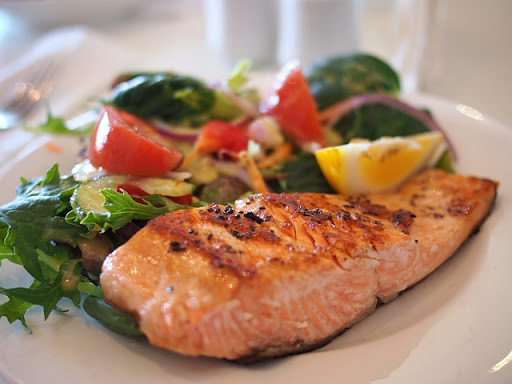
Sometimes it can feel like stress is all around us. We are trying to meet more demands than ever and our self-care routine gets pushed by the wayside.
That often leads to bad food choices and poor sleep habits, which in turn leads to internal stress. When we eat things like white flour, sugar, and fried foods we actually increase inflammation and stress hormone production. Doing a variety of things such as managing our sleep, exercising, and relaxation can be a good way to manage stress. However, what we put in our body has a huge impact on our stress levels.
Cortisol isn’t necessarily bad and can be helpful in the short term, but being exposed to it for too long can lead to chronic stress response which can contribute to anxiety, depression, fatigue, inflammation, and high blood pressure. People on a traditional American diet of high fat, sugar, and carbs have much higher cortisol levels than people who are eating more fruits and vegetables, whole grains, and polyunsaturated fats. While we can use supplements to address the issue of excess cortisol, we can see a bigger impact on lowering our inflammation with nutrient dense foods.
Foods that naturally decrease cortisol include:
1) Foods high in B vitamins- these include organ meat, beef, chicken, and eggs.
2) Foods high in Omega-3’s- salmon, walnuts, avocados, chia, flax, olive oil, tuna, and anchovies.
3) Magnesium Rich Foods- pumpkin seeds, almonds, pistachios, broccoli, bananas, artichokes, spinach, and dark chocolate.
4) Foods that regulate blood sugar-beans, legumes.
5) Foods that support a healthy gut microbiome-eat high fiber foods, and a lot of variety. Such as kimchi, kombucha, kefir, and sauerkraut.
6) Stay hydrated-dehydration is a stressor on the body. So make sure you are getting plenty of water throughout the day.
Foods to Avoid:
Alcohol, caffeine, saturated fats, sodas, candy, simple carbs like white bread. These foods can cause inflammation in the body and increase our cortisol levels.
We need to be mindful of the foods we eat and how they can impact our stress levels. And let us remember, we can’t just focus on food, we need a whole body approach to manage our stress levels.
